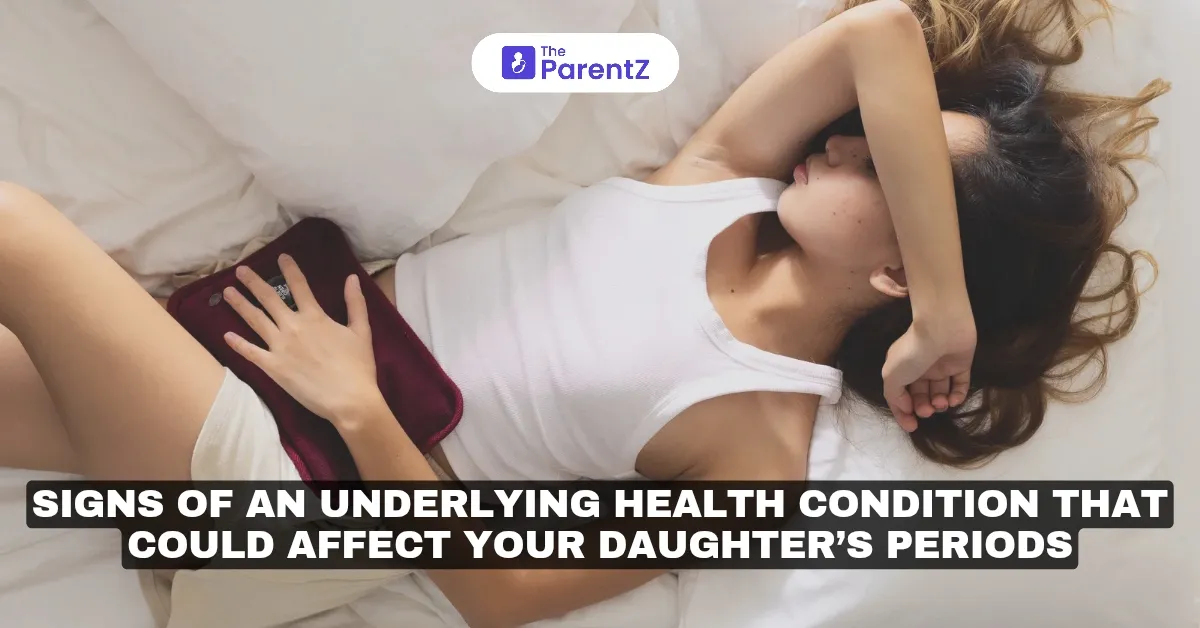Your daughter’s period is more than just a monthly cycle but it’s a reflection of her overall health. While some irregularities are completely normal, certain period problems could signal underlying health conditions that need medical attention.
So, how do you know what’s normal and what’s not? Let’s break it down.
Common Signs That Something Might Be Wrong
While no two menstrual cycles are the same, these red flags could point to an underlying health issue:
1. Extremely Irregular or Absent Periods
It’s normal for a teen’s period to be unpredictable at first. However, if your daughter:
Goes more than three months without a period (and isn’t pregnant)
Has periods that come less than 21 days apart or more than 45 days apart
Has wildly unpredictable cycles even after two years of puberty
It could be a sign of hormonal imbalances, PCOS, or thyroid issues.
Possible Causes
• Polycystic Ovary Syndrome (PCOS) – A hormonal disorder that disrupts ovulation.
• Thyroid disorders – Both an overactive (hyperthyroidism) and underactive (hypothyroidism) thyroid can affect periods.
• Eating disorders or excessive exercise – Low body weight can stop periods altogether.
2. Heavy Menstrual Bleeding (Menorrhagia)
A heavy flow now and then is fine, but if your daughter:
Soaks through a pad or tampon every 1-2 hours
Passes blood clots larger than a quarter
Bleeds for more than 7 days
Feels constantly tired or dizzy (signs of anaemia)
It’s time to see a doctor.
Possible Causes
• Hormonal imbalances – Too much estrogen or too little progesterone can cause excessive bleeding.
• Bleeding disorders – Conditions like von Willebrand disease can lead to excessive bleeding.
• Uterine fibroids or polyps – These non-cancerous growths can make periods heavier.
3. Severe Period Pain (Dysmenorrhea)
Cramps are part of the deal, but if pain is so bad that she can’t go to school or function normally, that’s NOT normal.
Look for
Cramps that don’t improve with pain relievers like ibuprofen
Pain that spreads to her lower back and legs
Nausea, vomiting, or dizziness along with cramps
Possible Causes
• Endometriosis – A condition where tissue similar to the uterine lining grows outside the uterus, causing intense pain.
• Adenomyosis – When the uterine lining grows into the muscle wall of the uterus.
• Pelvic inflammatory disease (PID) – An infection of the reproductive organs.
4. Frequent Spotting or Bleeding Between Periods
Occasional spotting can happen, but if your daughter:
Bleeds between cycles often
Has spotting after physical activity or for no clear reason
Experiences pain with spotting
It could be a sign of a more serious issue.
Possible Causes
• Hormonal imbalances
• Ovarian cysts
• Cervical polyps or infections
5. Extreme PMS Symptoms (Severe Mood Swings, Anxiety, or Depression)
We all know PMS can make anyone moody, but if your daughter has severe emotional changes before her period like depression, anxiety, or extreme anger—it could be something more than just PMS.
Possible Causes
• Premenstrual Dysphoric Disorder (PMDD) – A severe form of PMS that affects mental health.
• Hormonal imbalances – Excess estrogen or progesterone shifts can trigger mood changes.
• Vitamin deficiencies – Low levels of iron, magnesium, or vitamin B6 can make PMS worse.
6. Unusual Hair Growth or Acne
If your daughter is experiencing:
Excessive facial or body hair growth (especially on the chin, chest, or back)
Persistent, cystic acne (especially along the jawline)
Sudden, unexplained weight gain
It could be linked to a hormonal condition like PCOS.
When to See a Doctor?
Schedule a doctor’s visit if your daughter has
- Missed periods for more than three months
- Extremely heavy or prolonged bleeding
- Painful cramps that don’t get better with medication
- Spotting or bleeding between periods
- Extreme mood swings, depression, or anxiety before her period
The doctor may suggest blood tests, ultrasounds, or hormone evaluations to find the root cause.
How to Support Your Daughter?
Encourage her to track her symptoms – Apps like Clue or Flo can help identify patterns.
Create an open space for conversation – Let her know period problems are common and she’s not alone.
Promote healthy habits – A balanced diet, regular exercise, and stress management can help regulate periods.
Seek medical help when needed – Early intervention can prevent complications later.
Final Thoughts
As a parent, it’s natural to wonder if your daughter’s periods are normal. While many changes are part of puberty, persistent issues shouldn’t be ignored. If her cycles are irregular, painful, or unusually heavy, it’s worth a trip to the doctor.
By staying informed and proactive, you’re helping her build lifelong menstrual health and confidence.





Be the first one to comment on this story.